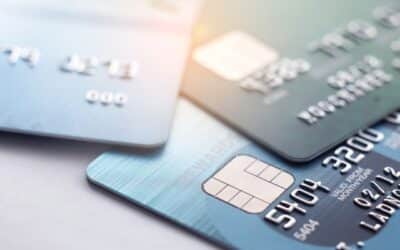The Importance of Credit
Whether you are new to credit or trying to build better credit, it’s important to understand what exactly it is, the different types and best practices. Building good credit doesn’t happen overnight. It takes time – typically at least six months of on-time payments. For some banks and credit unions, they may require at least 24 months of on-time payments, especially if you are among the youngest segment of borrowers who may not have a credit file or a thin file because you are just starting out.
Access to credit is important and building credit can be tricky. It you don’t have a credit history or have a damaged history, it may be more difficult to get a loan, credit card or rent a place to live.
What is Credit and Credit Score?
Credit is borrowed money used to purchase goods and services. This money comes from a credit grantor who you are required to pay back including any applicable fees and interest. A credit score is a three digit number that reveals to creditors your propensity to repay debt and helps them determine if they will approve you for a credit card or loan.
Types
- Revolving credit. You receive a maximum credit limit, and you can charge purchases up to that limit. Each month you carry a balance, you are required to make a minimum payment. A credit card is the most common type.
- Charge cards. While charge cards are very similar to credit cards with a maximum credit limit, they differ in that you must pay the entire balance every month.
- Service credit. While it’s not the same kind of credit as the aforementioned types, your agreements with service providers such as electricity, water, cell phone, etc. are indeed credit arrangements. You agree to pay for the services each month.
- Installment credit. A creditor loans you a specific amount of money which you agree to repay including interest over a set amount of time at a fixed amount. Cars, mortgages and personal loans are common examples.
Best Practices
- Pay your bills on time, 100 percent of the time. This practice is not just for your credit cards but every account you have that requires a payment.
- Limit the number of credit accounts that you open at once. Every time you open a new account, your score is impacted and will lower your average account age.
- Do not open and close accounts regularly. Try to keep your accounts open for as long as possible and remember to limit the number of accounts you have. Be selective in where you have credit cards. Keeping credit accounts open helps with the length of payment history and credit utilization and management.
- Check your credit reports annually to find errors. If you find any discrepancies, contact that credit card company to clear it up.
- If you carry a balance, do not let it exceed 30 percent of your limit. This percentage applies to all combined credit you have. By keeping your credit utilization low, you help keep your score higher. Remember that utilization is your balance when compared to your limit, and the higher the credit score the better.
- Work to establish credit in your name without a co-borrower. If you are under 21, do not have a credit history or have had bad credit in the past, you may need someone who has good credit to co-sign with you on your credit application. This is fine to do and after you have shown the ability to manage your credit, work to get a loan or credit card in just your name. It will help you in the future as your needs for credit change and mature.
How To Check Your Credit Score
To check your credit score, we recommend going to Annual Credit Report online. You should never have to enter a credit card to get this sensitive and important information. Remember to check once a year for any errors or discrepancies and report them as soon as possible as they can affect your score. If you check your score and are still unclear about what it means, our Centris service representatives can help you make sense of it all. Contact us at (402) 334-7000 option 0.



